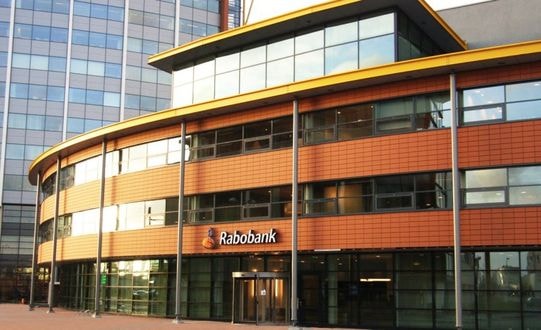It appears that banks have begun to understand that Bitcoin will become a serious threat for them.
In the United States several banks do not settle for any relationships with newly coming clients involved in Bitcoin business. Probably it's because of regulatory regarding to money laundering risks.
But Dutch people are not the only individuals who had issues with Bitcoin banking. Recently CoinDesk informed that one Swedish bank froze its customer’s account because he tried to sell 5 Bitcoins.
Seems, that now this problem arrived to the Netherlands. But Rabobank made it another way - it just have banned an option for customers to make any operations in Bitcoins.
As written in the article in one Dutch newspaper, this Tuesday and Wednesday Rabobank has canceled 99% of transactions made by customers using Bitcoin exchange markets.
Rabobank didn't provide any explanation for this. Only the representative of Dutch bitcoin exchange BTCNext mentioned - most probably it is because the bank decided these transactions will potentially cause a fraud.
Many Rabobank customers, however, did not manage to finish their transfers even after they have called the bank to verify that operations were not roguish.
Marc van der Chijs, a former Dutch entrepreneur who wrote this original article said that he has an account in Rabobank and he used it to obtain Bitcoins. Everything was going well until September. Then some transactions started not to proceed properly. He presupposed that the problem is on the exchanger's side and came to terms with that he will not be able to obtain more coins in the future.
Now he thinks, how come that this bank allowed such transaction for a long period of time and then just stopped doing this. Is it possible that the Rabobank decided to interrupt its customers' transactions for much longer period of time than just the past 2 days?
Technical issues, really?
When the bank told that there were problems on the technical side and now are solved, the author made a decision to obtain through Rabobank 5 Bitcoins.
It seemed the transaction will be completed until he clicked on "pay" button. He got a message that the account number he entered was incorrect.
The author tried to repeat the same operation many times and every time he was receiving the same error. After this he made a decision to test the system by transferring a small amount of money to someone else. This transaction was completed! Thus Rabobank continues to block customers of obtaining Bitcoin.
It is clear why a bank is not letting users to do this. When a customer is obtaining a Bitcoin to transfer there his savings, for example, the bank has extremely less cash on its books. That means the bank cannot lend out as much money he did before. It is not an issue if only some people make savings in Bitcoin, but when it comes to an overall public, and everyone wants to buy a Bitcoin it may destroy the bank’s business.
Banks need to innovate and embrace bitcoin
If the author were an owner of a bank, he might not make an attempt to stop Bitcoin purchasing. Instead of this he would actively investigate the options to embrace the digital currency.
Maybe he would like to create or obtain a bitcoin exchange, or produce a user-friendly wallet. It is not because this would be a good PR for his bank, but because it might attract more customers.
The author knows the banks are usually conservative, however they're still making the mistakes identical to those that the music and newspaper industries made more than 10 years ago.
Nobody can stop monetary innovation. If one cannot beat them, one should join them.


